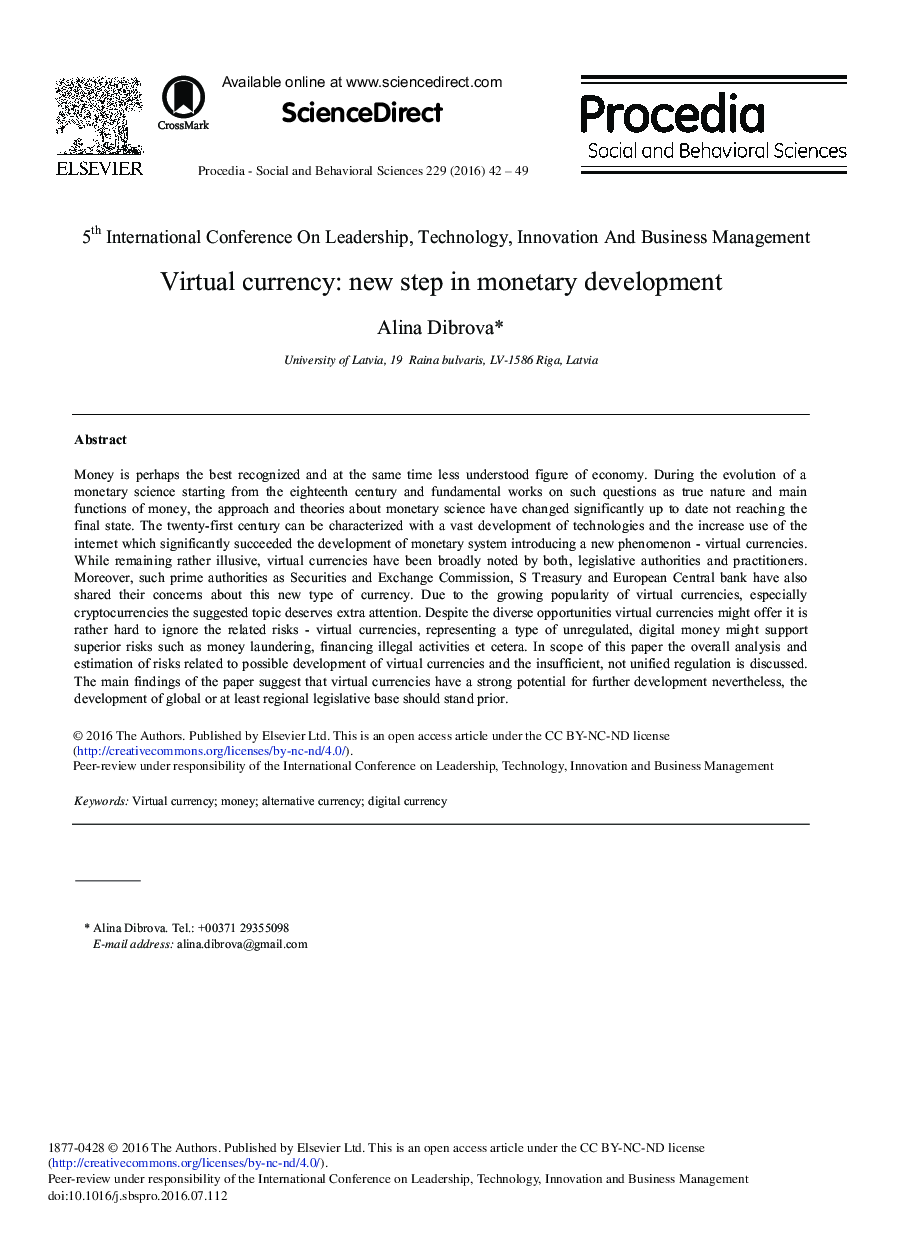| Article ID | Journal | Published Year | Pages | File Type |
|---|---|---|---|---|
| 5126331 | Procedia - Social and Behavioral Sciences | 2016 | 8 Pages |
Money is perhaps the best recognized and at the same time less understood figure of economy. During the evolution of a monetary science starting from the eighteenth century and fundamental works on such questions as true nature and main functions of money, the approach and theories about monetary science have changed significantly up to date not reaching the final state. The twenty-first century can be characterized with a vast development of technologies and the increase use of the internet which significantly succeeded the development of monetary system introducing a new phenomenon - virtual currencies. While remaining rather illusive, virtual currencies have been broadly noted by both, legislative authorities and practitioners. Moreover, such prime authorities as Securities and Exchange Commission, S Treasury and European Central bank have also shared their concerns about this new type of currency. Due to the growing popularity of virtual currencies, especially cryptocurrencies the suggested topic deserves extra attention. Despite the diverse opportunities virtual currencies might offer it is rather hard to ignore the related risks - virtual currencies, representing a type of unregulated, digital money might support superior risks such as money laundering, financing illegal activities et cetera. In scope of this paper the overall analysis and estimation of risks related to possible development of virtual currencies and the insufficient, not unified regulation is discussed. The main findings of the paper suggest that virtual currencies have a strong potential for further development nevertheless, the development of global or at least regional legislative base should stand prior.
